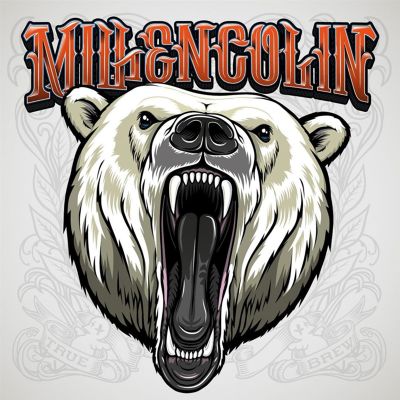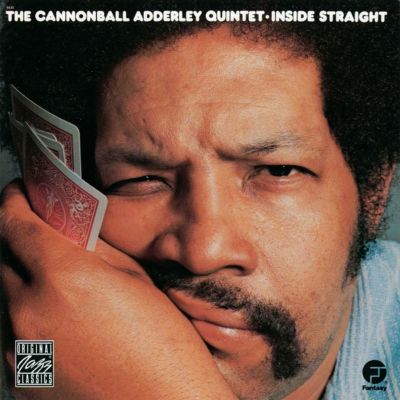Staff Picks for March 2019
March 31, 2019
Delivering on the promise of the Swiss-American experimental metal ensemble's 2016 debut, Stranger Fruit yields an uncompromising amalgam of blues, black metal, and African American spirituals that suggests Alan Lomax by way of Algiers and Burzum.
March 30, 2019
Various Artists
A thrilling collection of Scottish punk. post-punk pop and what have you that runs the gamut from noisy and weird to shimmering and beautiful, while making the case that 1977 to 1989 was a golden era of pop music.
March 29, 2019
If Beck or Kevin Parker made songs like this, there'd be nary a peep. But it's Weezer, so old ghosts return to haunt and nitpick. Surprisingly, this latest release (produced by Dave Sitek!) is not that bad. In fact, with catchy gems like "High As A Kite," "Too Many Thoughts In My Head," and "The Prince Who Wanted Everything," one might even say it's good. Rivers and company can't seem to catch a critical or cultural break, but if you were ever a fan, this is worth at least checking out.
March 28, 2019
On her sixth album, Molly Nilsson expands her splendidly isolated synth pop to include touches of reggae and Euro-disco without sacrificing any of the impact of her moody lyrics or oddly affecting deadpan vocals.
March 27, 2019
Nearly 20 years into the project, Dan Bejar delivered this epic exploration of New York city life. At nearly an hour in length, the album feels immense, though more so from its unexpectedly cinematic stylings than from playing time. Rotating, scene-setting arrangements (rock, jazz, chamber music) underscore beat-poetic narrative vignettes of a gritty reality seemingly from another time.
March 26, 2019
A collection of demo recordings cut between 1979 and 1985 that show off a rougher and more energetic side of these new wave cult favorites.
March 25, 2019
The Swedish punk outfit's presence in the U.S. is mostly relegated to a specific time, namely the skatepunk scene of the late '90s/early 2000s, but Millencolin has been cranking out high-quality, Bad Religion-inspired pit anthems since the early '90s, and the Epitaph-issued True Brew is a near-perfect distillation of knee-scraping skate rock and melodic, blue-collar punk-pop.
March 24, 2019
Achingly gorgeous and hauntingly stark, Mark Hollis' self-titled debut picks up where he left off with Talk Talk's Laughing Stock seven years earlier, re-emerging at the nexus point where jazz, ambient, and folk music collide. It's quite possibly the most quiet and intimate record ever made, each song cut to the bone for maximum emotional impact and every note carrying enormous meaning.
March 23, 2019
Neither as melancholy as 1977 nor as angry as La Bala, this is far more ambitious musically. Tijoux's music braids hip-hop cumbia, Andean folk, digital dub, brassy funk, soul, pop and jazz, or any combination she desires, placing them all at her command.
March 22, 2019
With the recent release of Mercury Rev's tribute to Delta Sweete, it's the perfect time to revisit the original. Featuring covers of songs Bobbie Gentry grew up with as well as originals inspired by her Mississippi childhood, her 1968 debut album's mix of country, folk, blues and soul expands on the unforgettable sound she created with "Ode to Billie Joe."
March 21, 2019
This 1990 album, originally released on indie stalwart Sub Pop, established the basic template for Billy Childish's oeuvre for the next decade to come: simple garage riffage, snotty, smart lyrics, and a tinny, devil-may-care production that underscores the casual desperation behind the music.
March 20, 2019
Five years after "Life in a Northern Town," the band's third LP would prove to be their last. Co-produced by David Gilmour, who also plays on the album, its wistful, graceful pop is a worthwhile addition to the band's all too brief catalog, despite a bizarre, drum loop-heavy version of John Lennon's "Love."
March 19, 2019
The band's 1990 album was their first for a major label and they made the most of it by producing what should have been a huge hit if not for the cloth-eared general public's indifference. "Heavenly Pop Hit" is the title of the song, for Pete's sake! How could it have missed, especially since it is as hooky and warm-hearted as anything you could imagine. Along with that absolute shoulda-been, the record is full of witty, catchy and slick alternative pop. You missed it then, catch up now!
March 18, 2019
Asides Besides essentially ties up all of Talk Talk's loose ends. Disc two reveals no shortage of prime rarities beginning with three demos and a handful of singles, but the real gems are the B-sides. In most cases, they are as strong as the ones that made it onto the albums and also indicate the more experimental direction the band would take later on.
March 17, 2019
Of all the side projects Stereloab spawned, Imitation Electronic Piano were one of the most charming -- and most changeable. Bassist Simon Johns, vocalist Mary Hampton and company experiment with bubbly synth pop, winsome chamber pop and lumbering prog rock, and the results are frequently thrilling.
March 16, 2019
Recorded in early stereo by Gerry MacDonald, the Shank Quartet (with pianist Claude Williamson, bassist Don Prell and drummer Chuck Flores) was caught during a seven-month period when they worked regularly at the Haig in Los Angeles. They stretch out on Williamson's "Ambassador Blues" and a variety of standards, playing cool-toned bop and pushing themselves.
March 15, 2019
This late-'90s trip-hop gem relies heavily on the then-contemporary Portishead vibe, but its lush, cinematic scope helps elevate it to its own satisfying heights. Aside from the minor hit "Life In Mono," there's plenty here (such as "Silicone," "Slimcea Girl," and "Playboys") to soundtrack a cool dinner party or a romantic evening. Endlessly cool with a vintage, spy-thriller vibe, Formica Blues is one to dust off and enjoy in all its timeless glory.
March 14, 2019
Playfully satirical, witty, and incredibly imaginative, A Wolf in Sheep's Clothing introduced one of the freshest talents in early-'90s rap, a self-produced duo who caught the tail end of the Native Tongues family. Though Dres and Mista Lawnge didn't match the brilliant wordplay of A Tribe Called Quest or De La Soul, their topics were well-chosen, they were presented in a hilarious context, and every song was backed up by strong productions and great rapping. It's not a comedy record, but it was difficult to tell when the duo were half-serious or half-joking, especially since they were often the objects of their jokes.
March 13, 2019
Frank Sinatra is made up as Pagliacci on the cover of 1958's Only The Lonely, but while this may be the most abjectly heartbroken album in his catalog, part of his genius is that he never sounds histrionic. No one could conjure the sound of a lonely soul alone with a glass of bourbon at 3 a.m. better than Sinatra in his prime, and his canny phrasing and Nelson Riddle's superb arrangements cut straight to the heart without a single wasted gesture.
March 12, 2019
5ive Style's 1995 debut features a member of Tortoise and a future member of Wilco performing a blistering set of funk-inspired instrumentals. The expected tight precision of this Chicago music scene balances out their raw energy on highlights including the loping push/pull leadoff track "Deep Marsh," the skittering, frenetic "Hard Afro Rubalon" and the reverbed-out "Outta Space Canoe Race."
March 11, 2019
The band's triumphant third album conjures a glamorous dystopia full of darkly danceable songs that flirt with shoegaze and industrial music, including the bleakly anthemic "Destroy Everything You Touch."
March 10, 2019
From the opening guitar rev up of the title track, Kicking Giant makes a declaration of unadulterated indie rock. The primal-stomp drumming of Rachel Carns on Alien I.D. proves just how unnecessary a bass player can be when making hook-laden indie punk-pop. What's most impressive about Kicking Giant is just how complete sounding their meager two instruments can be. From the cardigan sweater power ballad of "Drownings" to the Sonic Youth-style tone poems of "Inside out Flower and "Serrated Edge," there is never a feeling that something is missing.
March 9, 2019
It was one and done from this inspired power pop union that included a post-Jellyfish Jason Falkner and soon-to-be-ubiquitous producer and L.A. staple, Jon Brion, who had also just left his mark on Jellyfish's '93 classic, Spilt Milk. Melodic and exquisitely crafted, Ro Sham Bo shines as an overlooked 90's rock gem.
March 8, 2019
After seven years with Capitol, Cannonball Adderley switched labels to Fantasy where he reunited with producer Orrin Keepnews and the quality of his music immediately improved. With Hal Galper as the band's keyboardist (he contributed three of the seven group originals to this LP), this version of the Quintet (actually Sextet with the addition of percussionist King Errison) was more jazz-oriented than previously while remaining modern and funky.
March 7, 2019
Written and recorded by Wolfie's Joe Ziemba and Amanda Lyons as a kind of musical time capsule created to bring them comfort and happiness in their old age -- forward thinking, that, given both were still in their early 20s at the time of the record's release -- Busytoby's It's Good to Be Alive is an indie-pop valentine to the young couple's family and friends, a euphoric celebration of the wonders of love and life.
March 6, 2019
Released during Mazzy Star's hiatus, Hope Sandoval teamed with My Bloody Valentine's Colm O'Ciosoig to record an album of slight, wistful summertime ruminations performed in small arrangements with Sandoval's breathy melodies meandering throughout. The album's strongest point is found in the William Reid (Jesus and Mary Chain)-penned track "Drop" which opens the record.
March 5, 2019
Martin Jenkins' debut album for Ghost Box is a reminder of why his music is a perfect fit for the idiosyncratic label. Calling to mind the ghostly ambiance of abandoned warehouses and buildings and the faded charm of cult '70s children TV shows, Sleep Games lives up to its title's mystique.
March 4, 2019
Chronologically and stylistically arriving between the debut albums by Fatboy Slim and the Avalanches, the first album by British duo Bentley Rhythm Ace was a truly fun, adventurous jumble of silly samples and funky breakbeats. Sporting a very British sense of humor and a wide-ranging collection of records mainly purchased at carboot sales, the duo hit big with "Bentley's Gonna Sort You Out," a grin-inducing single with a hilarious video. Surprisingly enough, the entire album holds up well two decades later, certainly offering more replay value than most of their other big beat-era contemporaries.
March 3, 2019
Various Artists
Compiled by Spencer Doran of the understated electronic duo Visible Cloaks, this collection explores a spectrum of soft interior sounds and environmental ambient music made in Japan at the dawn of the compact disc era. The comforting collection takes from a cross section of sounds, ranging from music commissioned to be played in the background of department stores to drifting new age expressions.
March 2, 2019
Elvis Costello sounded like a supremely angry young man when My Aim Is True first appeared in 1977. Over four decades later, the bile of his delivery (and the pub rock backing from Clover) doesn't burn the way it once did, but the assurance of his songwriting and ferocious confidence of his delivery is as impressive as ever. Few artists ever sounded as fully formed out of the gate as Costello did here.
March 1, 2019
With the Mayhem biopic Lords of Chaos now playing in theaters, have a taste of the genuine article with this live album featuring the band's classic lineup tearing through its early, misanthropy-fueled material. The sound quality might be as poor as the film's adherence to facts, but both have their ugly charms.


![Weezer [Black Album]](https://fastly-s3.allmusic.com/release/mr0004983496/front/400/V9V0bwkx4NbgwiSwhGQWzw4Q1ghY8VaPylnm7PwcKNY=.jpg)



























